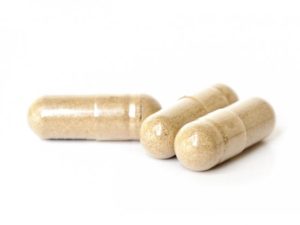 Some dietary supplements can do serious harm, especially when taken in high doses. A recent study found cancer associated with high doses of the supplement nicotinamide riboside (NR), which is a form of vitamin B3.
Some dietary supplements can do serious harm, especially when taken in high doses. A recent study found cancer associated with high doses of the supplement nicotinamide riboside (NR), which is a form of vitamin B3.
Keep in mind that this study was done in vivo and in vitro (in a lab), and also in mice.. and not humans. But the results are concerning.
Swiss and Univ. of Missouri researchers found that high levels of NT could increase the risk of developing triple-negative breast cancer, and also for it to metastasize to the brain. Yikes.
By the way, while NR can be purchased as a supplement, it is normally not found in ordinary multi-vitamins that many take daily. Low levels of NR are found in fruit, vegetables, meat, and milk - it is necessary for health (it increases levels of cellular energy). It's the large amounts found in supplements that the researchers were concerned with and that can be problematic.
Stay tuned for further research...
From Science Daily: Popular dietary supplement increases breast cancer risk, brain metastasis, study suggests
While previous studies have linked commercial dietary supplements like nicotinamide riboside (NR), a form of vitamin B3, to benefits related to cardiovascular, metabolic and neurological health, new research from the University of Missouri has found NR could actually increase the risk of serious disease, such as development of breast cancer and brain metastasis.
The international team of researchers led by Elena Goun, an associate professor of chemistry at MU, discovered high levels of NR could not only increase someone's risk of developing triple-negative breast cancer, but also could cause the cancer to metastasize or spread to the brain. Once the cancer reaches the brain, the results are deadly because no viable treatment options exist at this time, said Goun, who is the corresponding author on the study.
"Some people take them [vitamins and supplements] because they automatically assume that vitamins and supplements only have positive health benefits, but very little is known about how they actually work," Goun said. "Because of this lack of knowledge, we were inspired to study the basic questions surrounding how vitamins and supplements work in the body."
Following the death of her 59-year-old father only three months after being diagnosed with colon cancer, Goun was moved by her father's passing to pursue a better scientific understanding of cancer metabolism, or the energy through which cancer spreads in the body. Since NR is a known supplement for helping increase levels of cellular energy, and cancer cells feed off of that energy with their increased metabolism, Goun wanted to investigate NR's role in the development and spread of cancer.
The researchers used this technology to compare and examine how much NR levels were present in cancer cells, T cells and healthy tissues.
"While NR is already being widely used in people and is being investigated in so many ongoing clinical trials for additional applications, much of how NR works is a black box -- it's not understood," Goun said. "So that inspired us to come up with this novel imaging technique based on ultrasensitive bioluminescent imaging that allows quantification of NR levels in real time in a non-invasive manner. The presence of NR is shown with light, and the brighter the light is, the more NR is present."
Goun said the findings of the study emphasize the importance of having careful investigations of potential side effects for supplements like NR prior to their use in people who may have different types of health conditions.
